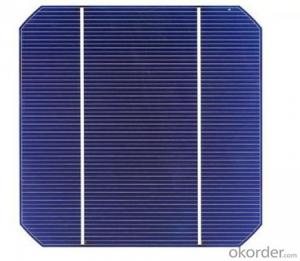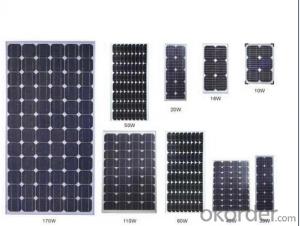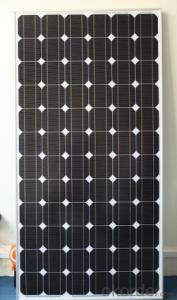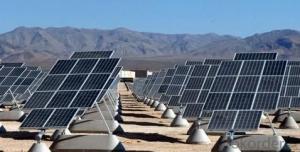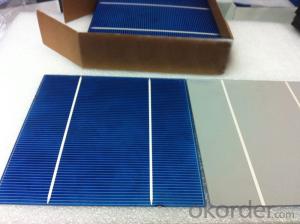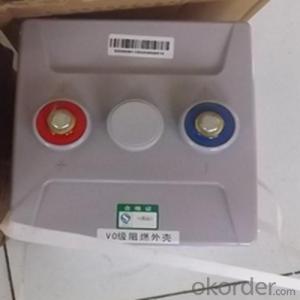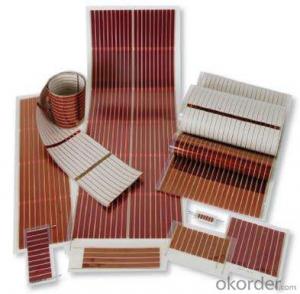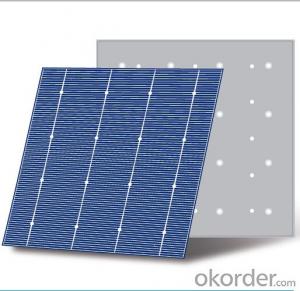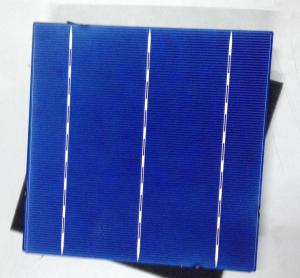Cadmium Solar Cells - sDfDfAsFaSfAsDfAsDfAsDfAs
- Loading Port:
- China Main Port
- Payment Terms:
- TT or LC
- Min Order Qty:
- -
- Supply Capability:
- 111111 pc/month
OKorder Service Pledge
Quality Product, Order Online Tracking, Timely Delivery
OKorder Financial Service
Credit Rating, Credit Services, Credit Purchasing
You Might Also Like
- Q: Can solar cells be used in remote locations?
- Yes, solar cells can be used in remote locations. Solar cells generate electricity by converting sunlight into energy, making them suitable for areas with limited access to the power grid or where it might be challenging or expensive to connect to traditional energy sources. They are often deployed in remote locations like rural areas, deserts, mountains, or islands to provide a reliable and sustainable source of power.
- Q: Can solar cells be used for aerospace applications?
- Yes, solar cells can be used for aerospace applications. They are commonly used in satellites and spacecraft to generate electrical power from sunlight. Solar cells are lightweight, reliable, and efficient, making them ideal for powering various systems and instruments in space missions.
- Q: What is the cost of solar cells?
- The cost of solar cells varies depending on a variety of factors such as the type and size of the solar cell, installation costs, and government incentives. On average, the cost can range from $0.30 to $0.60 per watt for residential solar cells and can be higher for commercial or utility-scale installations. It's important to consider the long-term benefits and savings that solar cells provide, making them a cost-effective investment in renewable energy.
- Q: How do solar cells perform in extreme temperatures?
- Solar cells generally perform less efficiently in extreme temperatures. High temperatures can cause solar cells to overheat, which can reduce their overall performance. Conversely, extremely cold temperatures can also impact their efficiency. However, solar cell manufacturers often design them to withstand a wide range of temperatures and take measures to minimize the impact of extreme temperatures on their performance.
- Q: What is the impact of bird droppings on solar cell performance?
- Bird droppings can have a negative impact on solar cell performance as they can create shading, reduce the amount of sunlight reaching the cells, and decrease the overall efficiency of the solar panels. Additionally, the droppings can contain corrosive substances that may damage the surface of the cells over time. Regular cleaning and maintenance are important to minimize these effects and ensure optimal solar cell performance.
- Q: Can solar cells be used in disaster response vehicles?
- Yes, solar cells can definitely be used in disaster response vehicles. Solar cells can provide a reliable and sustainable source of power, allowing these vehicles to operate even in areas with limited access to electricity. They can be used to charge batteries, power communication and lighting systems, and run necessary equipment, making disaster response vehicles more self-sufficient and efficient during emergency situations.
- Q: Can solar cells be used in harsh climates?
- Yes, solar cells can be used in harsh climates. While extreme temperatures, snow, and dust can potentially affect the efficiency and performance of solar cells, advancements in technology and design have made them more resilient. Specialized coatings, materials, and mounting systems are employed to protect solar cells from harsh weather conditions. In fact, solar panels are increasingly being used in various extreme climates around the world, including deserts and polar regions, proving their adaptability and effectiveness even in challenging environments.
- Q: Can solar cells be used in water heating systems?
- Yes, solar cells can be used in water heating systems. Solar thermal collectors, which use solar cells, can capture sunlight and convert it into heat energy to warm water. This technology is commonly used in solar water heating systems, where the heat generated by solar cells is transferred to water in order to provide hot water for various purposes.
- Q: How do solar cells impact local economies?
- Solar cells can have a positive impact on local economies in several ways. Firstly, the installation and maintenance of solar panels create job opportunities, boosting employment rates and income levels in the local community. Additionally, solar energy reduces dependence on imported fossil fuels, which in turn decreases energy costs for businesses and residents, leading to increased savings and disposable income. Moreover, solar power can attract investments and promote the development of local solar industries, thus stimulating economic growth and innovation. Overall, solar cells contribute to a more sustainable and prosperous economy at the local level.
- Q: Do solar cells work at night or in low light conditions?
- No, solar cells do not work at night or in low light conditions as they rely on sunlight to generate electricity.
Send your message to us
Cadmium Solar Cells - sDfDfAsFaSfAsDfAsDfAsDfAs
- Loading Port:
- China Main Port
- Payment Terms:
- TT or LC
- Min Order Qty:
- -
- Supply Capability:
- 111111 pc/month
OKorder Service Pledge
Quality Product, Order Online Tracking, Timely Delivery
OKorder Financial Service
Credit Rating, Credit Services, Credit Purchasing
Similar products
Hot products
Hot Searches
Related keywords







